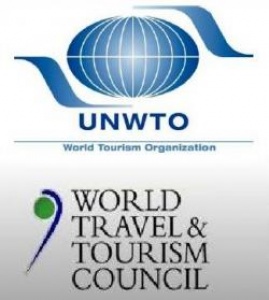Serbian President highlights value of tourism on joining Global Leaders Tourism Campaign

UNWTO and the World Travel & Tourism Council (WTTC) have welcomed Serbian President Boris Tadic’s move to join the Global Leaders for Tourism Campaign, which brings together heads of state and government that have recognized tourism’s potential for economic growth and development.
“There are real prospects for tourism development in the Republic of Serbia, especially in thematic routes, city breaks, business and mountain tourism,” said President Tadic. The President highlighted tourism’s significant contribution to GDP and job creation, directly in tourism and in other sectors of the economy.
“Serbia had some of the best tourism results in Southern Mediterranean Europe in 2011,” said UNWTO Secretary-General, Taleb Rifai. “International tourist numbers were up 12% and tourism receipts, which currently account for 7% of Serbia’s exports of services, increased by 18%, showing that the sector can be a vital instrument in achieving the development goals set by the country.”
David Scowsill, President & CEO of WTTC, said: “Serbia has made huge advances in attracting tourists to the country where the sector now employs 97,000 people. Further investment is now needed to continue advancing this critical industry in Serbia – both marketing funds from the government and infrastructure investment from the private sector. Recent news of Serbia possibly ascending to the EU will present new opportunities for Travel & Tourism in Serbia. Certainly by the President taking this step today in joining the Global Leaders for Tourism Campaign, Serbia is placing Travel & Tourism at the forefront of its development and job growth as it positions to reap the benefits from potential membership in the EU.”
Meeting with the President, Mr. Rifai expressed his confidence in the future of tourism in Serbia, in particular in the development of tourism products such as wellness, cultural and rural tourism, given that “tourists are increasingly looking to experience the countryside, engage in local activities and learn about traditions.”
ADVERTISEMENT
Rural tourism provides opportunities outside of major cities, he said, generating employment and income for people where they live and stemming rural flight, as well as supporting the preservation of local traditions and economic activities such as agriculture or handcrafts.
The potential of rural tourism for development was the central theme of a conference held in the framework of the Belgrade International Tourism Fair. The conference highlighted the on-going US$4 million Millennium Development Goals Achievement Fund (MDGF) project “Sustainable Tourism for Rural Development”, which joins five UN agencies (UNDP, UNEP, FAO, UNICEF and UNWTO) and national authorities to support the diversification of the rural economy in Serbia through tourism. The MDGF was established in December 2006, with a generous contribution of US$ 710 million from the Spanish Government. UNWTO is currently involved in eleven MDGF projects, promoting the potential of tourism to achieve the Millennium Development Goals around the world.
On the occasion, Serbia also became the first country to adopt the UNWTO Crisis Communications Toolbox, a step-by-step guide to effective crisis communications in tourism that helps destinations prepare their crisis communications plans and limit the impacts of crises on their tourism sectors. The Toolbox, which includes templates for press releases and other crisis communications formats, covers issues from interviews and press conferences to the use of social media, and is fully adaptable to individual country needs.

